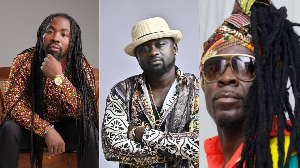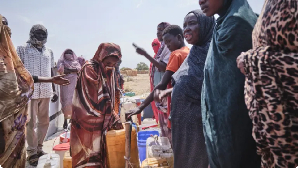Accra, May 4, GNA - Participants at a round-table on Monday agreed that Climate Change issues were real and a fact in Ghana and called on government to implement measures to deal with it since it could affect the agricultural sector as well as the economy. An unscientific poll conducted during the discussion showed that 80 percent of the participants believe that climate change could have a devastating effect in Ghana in the next 20 years and urged stakeholders to create awareness about the situation.
The discussion, held as part of the European Union (EU) week celebrations held in Accra brought together academia, civil society organizations, non governmental organizations and the general public to debate climate change.
The EU Day is celebrated by the member states of the European Union to highlight peaceful co-existence and dialogue on common problems in the world. Climate change is any long term significant change in the expected pattern of average weather of a specific region. Ms Sherry Ayittey, Minister of Environment and Science, said Ghana was looking forward to a harmonious and well coordinated system of managing climate change effectively, expressing strong belief that climate change will have an effect in Ghana in the years ahead She named climate change as the greatest challenge to development in Ghana and pointed out that the situation presented one of the greatest risk to the poor and vulnerable, especially women and children in rural areas.
"Crops like cocoa and even the fisheries sector has already been affected by climate change," Ms Ayittey said calling on all stakeholders to be involved in solving the problem. Mr Benjamin Manu, Project Delivery Manager at the British Council, expressed concern about the lack of knowledge on the subject in most African countries.
He cited an example of research conducted in Nigeria where most respondents to issues on climate change said they think that climate change effects was a punishment from God for their sins. Mr Manu classified the society into three groups namely the researchers, scientists and practitioners as one class, the middle class for average people who have attained some high level of education and those he called the significant majority who include artisans and market women who all understand the issue of climate change differently. He asked: "So how do we find a communication strategy that suits all these people of different classes?"
General News of Monday, 4 May 2009
Source: GNA
Climate change is a fact in Ghana - Stakeholders
Entertainment

Seven popular Ghanaian songs sampled by foreign artistes
Opinions









